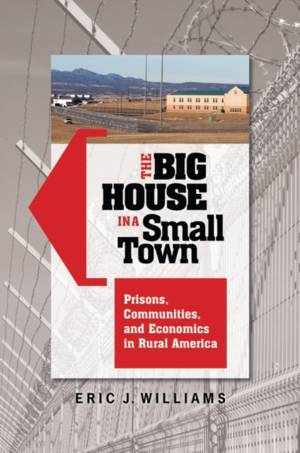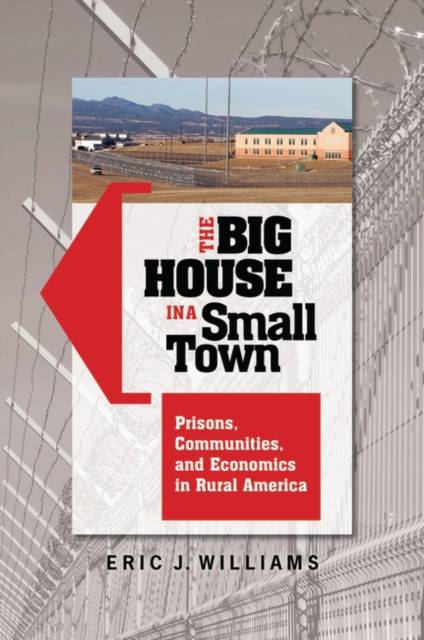
- Retrait gratuit dans votre magasin Club
- 7.000.000 titres dans notre catalogue
- Payer en toute sécurité
- Toujours un magasin près de chez vous
- Retrait gratuit dans votre magasin Club
- 7.000.000 titres dans notre catalogue
- Payer en toute sécurité
- Toujours un magasin près de chez vous
The Big House in a Small Town
Prisons, Communities, and Economics in Rural America
Eric Williams
Livre relié | Anglais
76,45 €
+ 152 points
Description
This work is an in-depth, on-the-ground examination of how prisons impact rural communities, including a revealing study of two rural communities that have chosen prisons as an economic development strategy.
A recent study by the Urban Institute estimates that one-third of all counties in the United States house a prison, and that our prison and jail population is now over 2.1 million. Another report indicates that more than 97 percent of all U.S. prisoners are eventually released, and communities are absorbing nearly 650,000 formerly incarcerated individuals each year. These figures are particularly alarming considering the fact that rural communities are using prisons as economic development vehicles without fully understanding the effects of these jails on the area. This book is the result of author Eric J. Williams' ground-level research about the effects of prisons upon two rural American communities that lobbied to host maximum security prisons. Through hundreds of interviews conducted while living in Florence, Colorado, and Beeville, Texas, Williams offers the perspective of local residents on all sides of the issue, as well as a social history told mainly from the standpoint of those who lobbied for the prisons.Spécifications
Parties prenantes
- Auteur(s) :
- Editeur:
Contenu
- Nombre de pages :
- 168
- Langue:
- Anglais
Caractéristiques
- EAN:
- 9780313383656
- Date de parution :
- 03-03-11
- Format:
- Livre relié
- Format numérique:
- Ongenaaid / garenloos gebonden
- Dimensions :
- 155 mm x 236 mm
- Poids :
- 408 g







